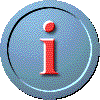
|
Solution: Envision IT |
|
Modeling
and management tools for IT applications, systems and networks |
 Methods
and tools for IT functional, applicative and technical architecture
Methods
and tools for IT functional, applicative and technical architecture
Envision is certified TOGAF 8
Two
choices:
-
IT
urbanization based on the
Christophe
Longépé approach : "The IT
urbanization project"
-
Standard
IT mapping, totally user defined including : applications, data, flows,
systems, networks...
Years
of exploitation, radical business changes, recurring technology upgrades and/or
reorganizations have created a "substantial disorder" in the information system.
More serious is the important divergences which now appeared with today's
company's real business needs. Taking back the control of such monster becomes an
imperative and a major challenge. The enterprise vital performances in the
medium term are in plays.
Standard case study:
Distributed sites, heterogeneous and often distant teams, a diversity of more or
less obsolete machines, tens or hundreds of applications with different versions
including hundreds or thousands functions, some of which are redundant or not
any more in used or incompatible…
The essence of the
problem is the analysis and the management of a large quantity of complex
information in fast evolution. To successfully reorganize the information
system requires a determination, adapted methods and tools and… nerves of
steel.
Two uses are usually led:
- Local,
at IT level. The reorganization
passes by a mapping of the current situation: Applications, systems, actors.
It allows the necessarily understanding of the system and provides
assistance in taking urgent actions.
- General,
at the enterprise level. The most
complete, it follows upon the business processes modeling. In addition to
the local vision, it allows the adequacy with the real and updated company's
business needs. It specifies and justifies more the necessary and immediate changes
and long terms actions. It gives relevant information compared to the
strategic objectives, which facilitate the decision-making process and
ensures total coherence.
|
|
New
Includes risks
management over business IT application, systems and networks
Envision
Risks IT
Risks Management
allows:
-
Identification
of hazards sources from IT applications, systems and networks
-
Generation of
scenarios in order to find the origin (genesis) of new hazards
-
Definition and
characterization of risks criticity (gravity/frequency or probability)
-
Definition of
operational and technical barriers in order to reduce to an acceptable
level the consequences of un wanted events and help to master the residual
risks
-
Management of
incidents to continuously monitor new risks and the performance of the
barriers impact
-
Implementation
of actions plan
-
Control
protection cost and actions efficiency
|
More on IT modeling
and urbanization technique
Bibliography
"L'approche processus - mode
d'emploi"© by Hans
Brandenburg and Jean-Pierre Wojtyna - Edition d'Organisation
"Le projet d'Urbanisation du
S.I."© by Christophe Longépé -
Dunod
|
|
Documentation and prices


|
Envision
IT
can be integrated with
Envision Process,
IT modeling and mapping tool within:
Envision Business Suite to form a
complete enterprise architecture environment. |
|
Solution key points
-
IT urbanization is coherent with the business processes model
The elements of the Functional Architecture (FA) are directly derived
from the process model data. UML packages, components and concept
classes automatically become zones, districts or blocks. Process model and
FA are coherent.
-
Complete
Beyond urbanization, the tool
allows logical and physical cartography of networks and systems, their
components, the nature and structure of data bases.
- Follow-up of
systems and applications evolution of the versions
Allows backup, history tracking and creation of
unlimited versions.
- Information
leveraging and traceability
Centralize and shares
information in real time between actors (multi users), projects and
organization. Thus all members share the same definition of the project
- Evolutionarily and
flexibility
At any moment you can
completely reconfigure the tool to add new views or new diagrams…
- Reliability
All data and reference
documents are recorded in a protected, relational data base.
Information is reliable, up to date, available and no redundant.
|
Information leveraging solutions
tailored to each enterprise and its projects.
In France since 1989
 |
|
IT urbanization meta model |
 |
 |
|
Functional architecture

Allows to identify all company's functions and to organize them per building
blocks. It is the interface with the processes activities
|
Applicative
architecture

Allows to map
functions by application, to structure applications and to define
interfaces.
|
Technical architecture
 Allows
to map applications to systems and to specify the operational
context. Allows
to map applications to systems and to specify the operational
context. |
Physical architecture
 Logical and physical cartography of the
networks and the system's internal components architecture
Logical and physical cartography of the
networks and the system's internal components architecture
|
 UML :
The cement between the bricks UML :
The cement between the bricks
The UML method is integrated in
each stage. This method is transparent to the users for the
higher stages. It is voluntarily hidden in order to facilitate
the approach with not initiated users. UML elements are
present in all lower layers of the models in order to maintain
general coherence and to prepare the work for object oriented
design which could result from this. At any moment the user has
access to all UML diagrams. A
UML-C++/Java code and applications generator
option is available, for designing the missing elements. Thus
the traceability is total over processes, activities programs
and data bases.
|
 |
|









